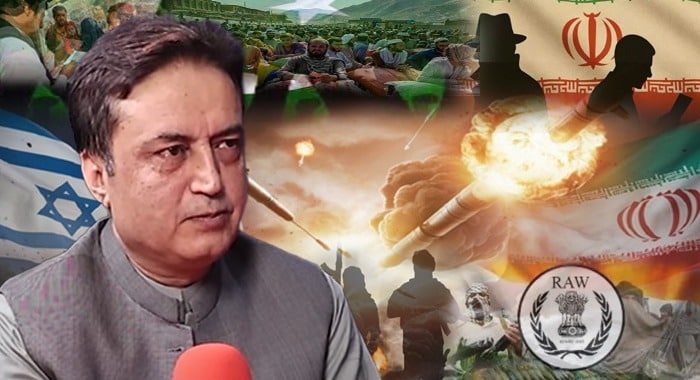The recent unearthing of a massive espionage network in Iran, allegedly run by India’s RAW and Israel’s Mossad and involving thousands of covert operatives, including Afghan nationals, should send shock-waves across every state in the region. It is not merely an Iranian concern. This is a regional threat model that exposes how intelligence warfare has evolved: decentralised, deniable, and dangerously embedded in refugee and civilian populations.
While much of the initial focus remains on Afghan refugees allegedly co-opted into this network, limiting the discourse to nationalities is simplistic, and dangerously misleading. Intelligence agencies have long operated through all available demographics. If 90% of those caught in Iran were Iranian citizens, what makes us assume such infiltration is not possible in Pakistan?
More unsettling is how, in Pakistan, voices from within so-called “power centres” occasionally flirt with ideas like normalisation with Israel, ideas strongly rejected by the general public. It begs the question: Are these merely diplomatic musings, or are foreign intelligence networks influencing internal discourse, either through psychological operations or embedded sympathisers?
The Pakistani state must understand that ideological subversion is no longer about leaflets or pamphlets. It’s about engineered narratives, whispered policy shifts, and elite capture through soft power tools—often laundered through think tanks, NGOs, or pseudo-academic channels.
Iran’s response, though jarring to liberal sensibilities, offers a real-time case study in counterintelligence mobilisation. Public service announcements now encourage citizens to report unusual sounds (like welding) or suspicious activities. Tehran has launched an aggressive campaign involving community-based vigilance, essentially arming its civilians with awareness.
If Mossad and RAW can build such an intricate web in a country as tightly controlled as Iran, then Pakistan, a state with more fluid borders, historical refugee spillovers, and economic vulnerabilities—must consider a similar shift in doctrine.
Pakistan hosts millions of Afghan refugees, many of whom have lived here peacefully for decades. Blanket blame is not only unjust but counterproductive. However, blind trust is equally dangerous. As Iran’s case shows, any national, be it Afghan, Iranian, or Pakistani, can become a pawn in intelligence games if the opportunity, motivation, or coercion aligns.
The real question is not “who” is infiltrated but where the system has left gaps for exploitation.
RAW and Mossad aren’t just operating through people, they’re deploying entire digital ecosystems. Botnets, fake news pages, hashtag campaigns, and disinformation clouds blur the line between activism and manipulation. Pakistan’s growing digital space is under-targeted in this hybrid war.
What starts as an emotional campaign for a “missing person” can quickly become a state-destabilizing movement if left unchecked. We’ve already seen how emotional triggers—“crying mothers,” “youth heroes,” “resistance icons”, have been weaponized to shield outright terrorism in places like Balochistan.
Pakistan’s security institutions have, by and large, remained vigilant. However, the Iran incident should prompt a comprehensive review of:
Internal vetting mechanisms, for foreign residents and dual nationals.
Campus security protocols, especially for international students.
Monitoring suspicious financial flows, particularly those routed through crypto and front companies.
Narrative warfare detection, identifying and disabling coordinated online influence operations.
Iran may have borne the brunt this time, but the infiltration map is not limited to its geography.
In the backdrop of Iran’s intelligence sweep and India’s failed gambits in places like Pahalgam, the geopolitical winds are shifting. Modi’s moral high ground has eroded under the weight of diplomatic embarrassment and operational failures. Netanyahu, too, finds himself increasingly cornered—his ambitions in Iran now backfiring dramatically.
Pakistan’s own victory in the information sphere against India has shown what disciplined, patriotic counter-narratives can achieve. But resting on that laurels is not an option.
We do not need paranoia, but we do need preparedness.
Not every refugee is a spy, and not every power centre voice is compromised. But one spy, one operative, one narrative weaponized at the right moment can do irreparable damage.
Iran just proved that. Pakistan must not wait for its own wake-up call.





